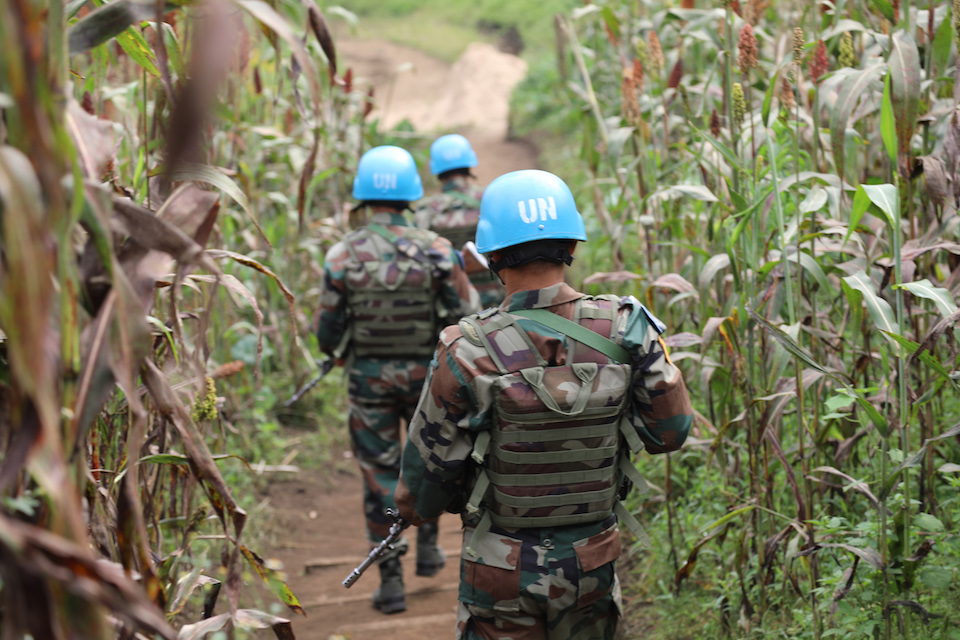Protecting civilians in DRC and ensuring an effective exit strategy for MONUSCO
Statement by Sonia Farrey, UK Political Coordinator at the UN, at the Security Council briefing on the Democratic Republic of the Congo

Madam President, let me begin by thanking SRSG Zerrougui for her briefing and commend the continuation of MONUSCO鈥檚 vital operations throughout the unprecedented Covid-19 pandemic. We are also grateful to Ambassador Abarry for briefing on the 1533 Committee.
President Tshisekedi鈥檚 call for electoral reforms based on consensus is welcome. We call on all parties to reduce tensions, which risk jeopardising progress, and to work together to seek reforms, which will deliver timely and credible elections.
We remain committed to ensuring long-term stability and security in eastern DRC. The deterioration in North and South Kivu, resurgence of conflict in Ituri, and increased ADF activity in areas previously controlled by DRC鈥檚 armed forces are concerning. There is a critical need for security sector reform in DRC, grounded in a comprehensive national strategy to be developed by the Government of DRC.
We are encouraged by MONUSCO鈥檚 work with Governors in eastern DRC on the development of Disarmament, Demobilisation and Reintegration (DDR) roadmaps 鈥� and welcome reports that a number of armed-groups and militia combatants鈥� are ready to surrender. We call on the Government of the DRC to support this momentum by nominating a national focal point and developing a comprehensive national framework on DDR.
The human rights situation remains deeply troubling, in particular the increased abuses by armed groups, widespread conflict related sexual violence and continued violations by state agents, including in the context of measures implemented to tackle Covid-19. We condemn the involvement of DRC鈥檚 armed forces and police in conflict related sexual violence.
We echo the Secretary-General鈥檚 call for the adoption of a national transitional justice strategy capable of addressing the culture of impunity and providing justice. We urge all state agents to demonstrate full respect for human rights and call for continued efforts by the Government of the DRC on improving the human rights environment.
Mr President, as DRC鈥檚 second largest bilateral donor, the United Kingdom remains a committed humanitarian and development partner. We recognise the broader socio-economic impact of Covid-19 on DRC鈥檚 health crisis and humanitarian situation. We are concerned by the risk of a further deterioration in both, and reduced capacity to respond to crises, including the 11th Ebola outbreak in Equateur province and growing concerns of food insecurity.
We echo the Secretary-General鈥檚 call to investigate fully the allegations of sexual exploitation and abuse in 2018-2020 against those working on the Ebola response in the eastern DRC. Sexual exploitation and abuse are completely abhorrent and the United Kingdom expects thorough investigations whenever allegations are made.
Protection of civilians is of the utmost importance to peace and stability. We welcome MONUSCO鈥檚 development of targeted provincial Protection of Civilian strategies. Local and national ownership will be essential to their successful implementation.
We call for the prompt implementation of mandated reforms to MONUSCO and its Force Intervention Brigade. While noting the delays due to Covid-19, it is crucial that all relevant stakeholders, particularly the relevant Troop Contributing Countries, cooperate constructively to ensure the full implementation of the reforms mandated by this Council.
Finally, Madam President, we look forward to receiving the MONUSCO鈥檚 exit strategy, developed jointly with the Government of the DRC, later this month. We expect the transition to be conditions based, with clear and measurable benchmarks. We call on the Government of the DRC to participate actively in planning MONUSCO鈥檚 exit: national ownership will be critical in ensuring the exit is sustainable.
Thank you.